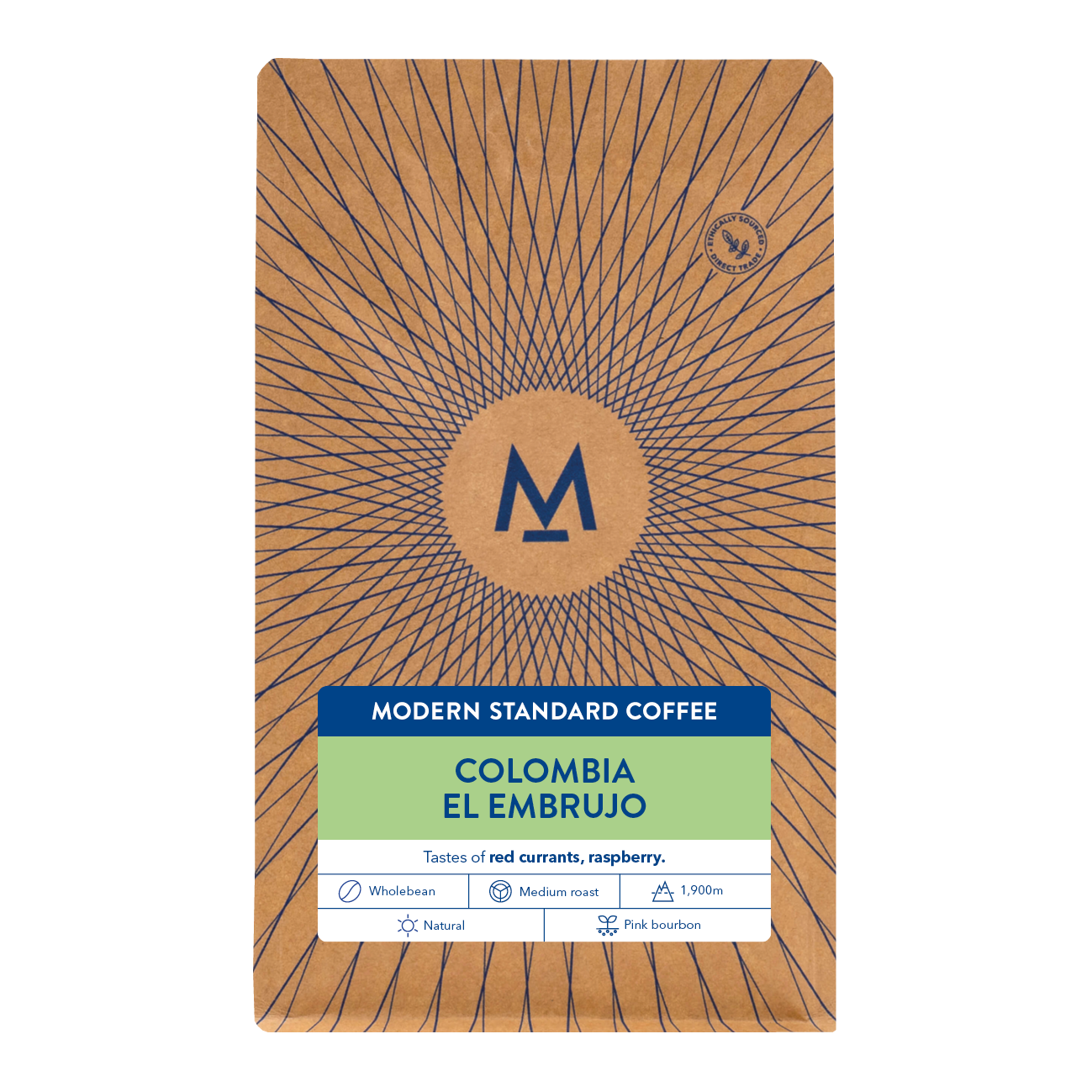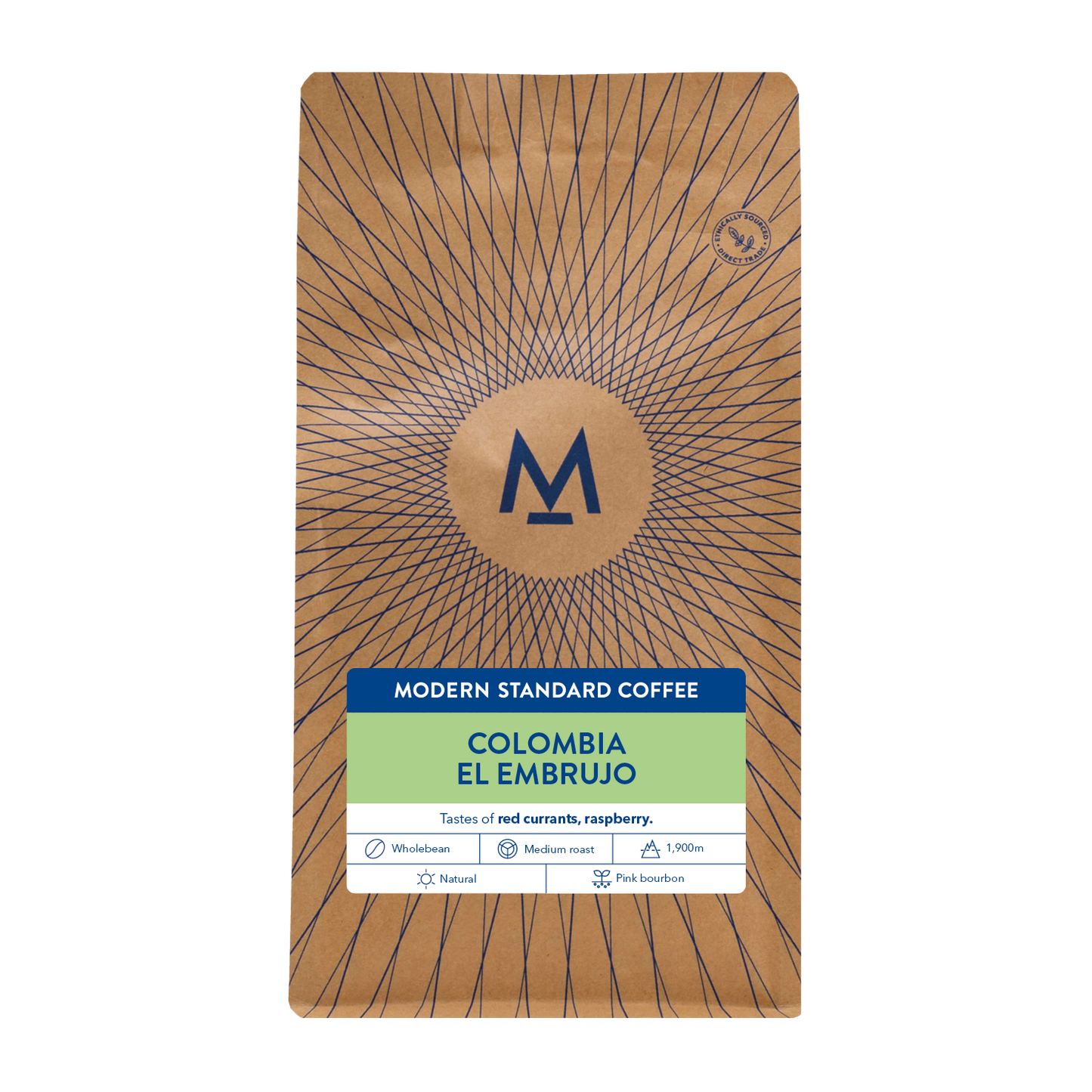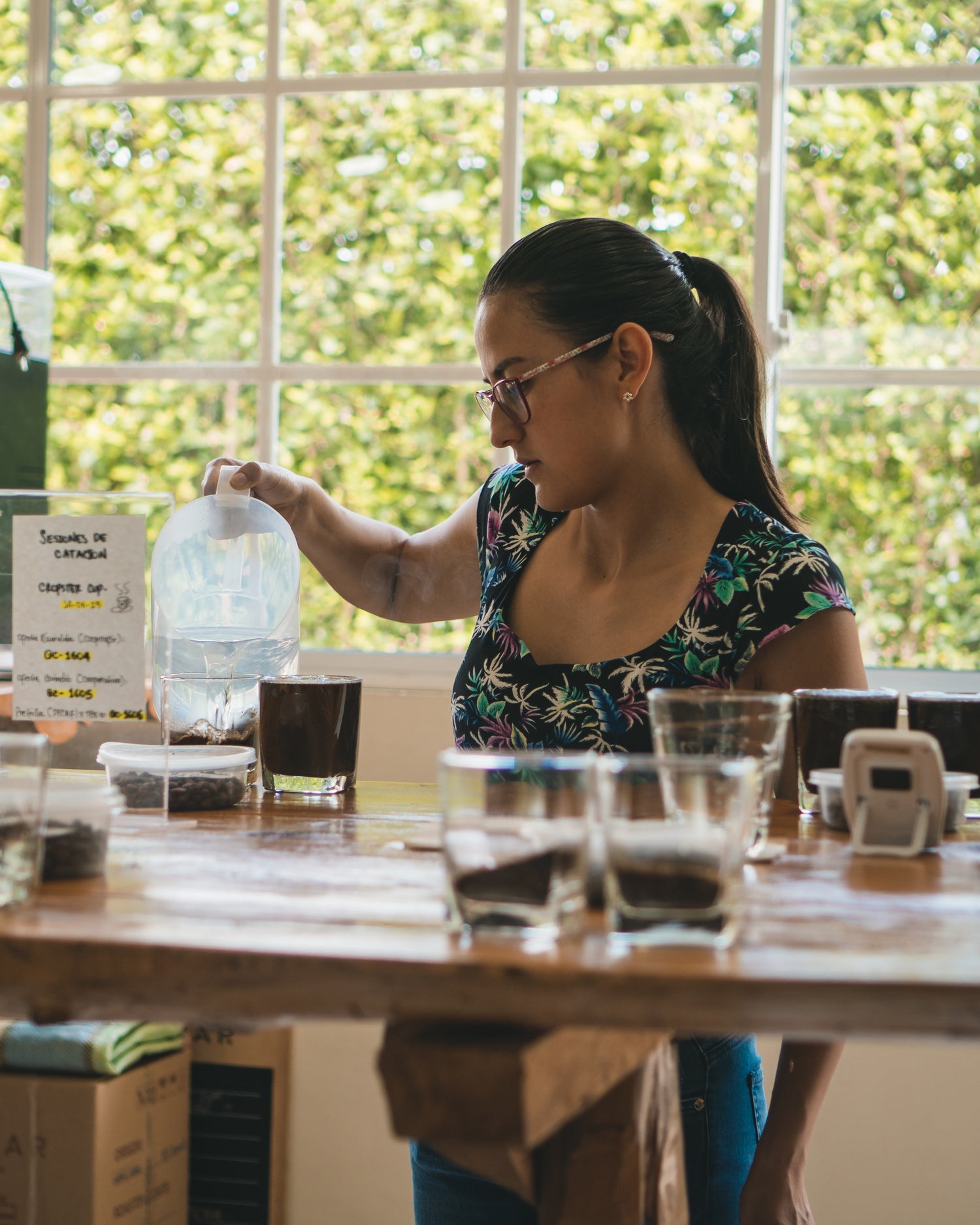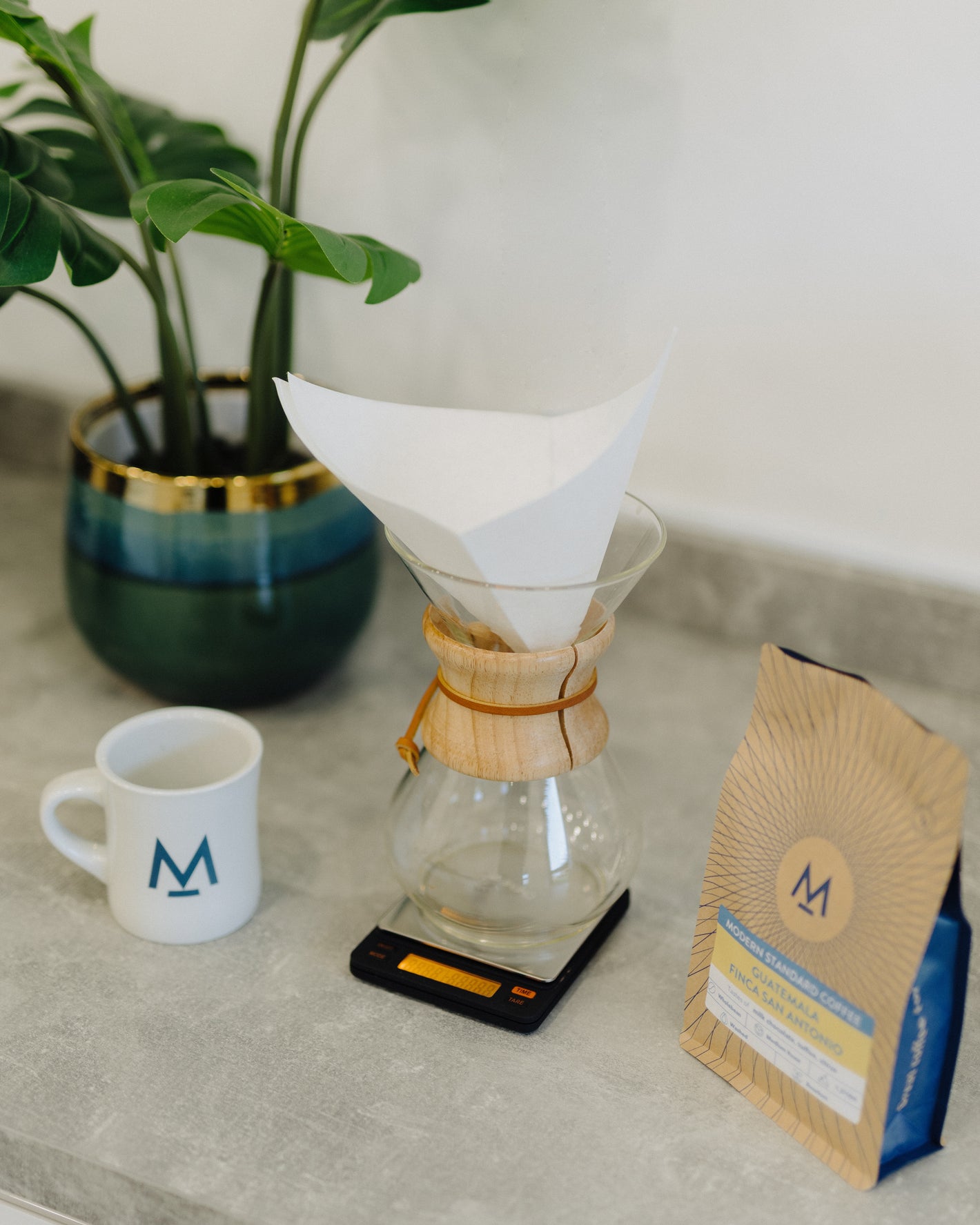

The overview
| Countries of origin | Colombia |
| Producer | Edimer Penna |
| Altitude | 1450 - 1900m |
| Varietal | Pink bourbon |
| Process | Natural |
The producer
Finca La Palmera has been family-owned for over 50 years, beginning when Ignacio Rodriguez’s father purchased the farm’s original 12 hectares. Through years of dedication and hard work, the farm expanded steadily, reaching 170 hectares by the time Ignacio took over. Today, Ignacio continues this legacy with a focused commitment to producing specialty-quality coffee, combining scale with close attention to detail across the farm.
The coffee
Coffee cherries are selectively handpicked, with harvesting overseen by a patrón to ensure only fully ripe, red cherries are collected. To encourage quality-focused picking, harvesters are paid above the local average rate. Once delivered to the on-site processing facility, cherries are floated to remove underripe and overripe fruit, then passed along moving belts where further hand-sorting removes any damaged cherries.
The selected cherries are fermented for between 36 and 120 hours, depending on ambient conditions, before being dried using mechanical dryers. This controlled drying method allows for consistency and precision at scale. After drying, the coffee is rested in GrainPro bags to stabilise before final preparation and export, resulting in a clean, well-structured cup that reflects the care taken throughout the process.
Why we love it
I've worked in coffee for well over 12 years, and in that time, you grow to love the weird and wonderful coffees, and El Embrujo is just that. Lots of raspberry and pineapple flavours, it's just fabulous.
Lee's Brew Guide
Out: 31-33g
Time: 24-26s
Water: 305g
Ratio: 1:17
Natural coffees are funky in nature, so expect wild fruit notes and lots of body in the cup, make sure to smell the grounds as the aroma is outstanding.


El Embrujo
The name “embrujo” comes from the Spanish word for “spell”. Ignacio believes that truly excellent specialty coffee will evoke the “magic of coffee” for drinkers. To this end, he is focused on transitioning from traditional agriculture to a more specialty focus. Ignacio is building a laboratory and microbiology lab to help him better understand the process at the biological level and ultimately improving his processing for consistency and flavor.
Ignacio employs 48 women year-round. These women, many of whom are single mothers supporting their families, ensure high-quality by sorting cherry and parchment to remove any defective beans.
Igancio saves the pulp from processing his washed process coffees and applies it to coffee trees as fertilizer. He is planning to use vermiculture to further process pulp into nutrient-rich fertilizers. Water from processing is used to irrigate his corn crops. The processing operation is fueled entirely by renewable energy from solar panels.
Another change Ignacio is making to ensure the highest quality and most sustainable processing is transitioning to lower water-use processing, like this Natural.
In addition to coffee, Ignacio also grows avocados and maize.

Colombia Coffee
Colombia has been producing and exporting coffees renowned for their full body and bright acidity since the early 19th century. Thanks to its wide range of coffee growing regions, microclimates, and altitudes, Colombia is harvesting throughout the year.
Colombia boasts a wide range of microclimates and geographical conditions that produce the unique flavours so loved in Colombian coffees. While there are many sub-regions and progressively smaller geographical designations—all the way down to individual farms—broadly speaking, coffees in Colombia can be separated into three major regions whose climate, soils and altitudes affect tastes.












